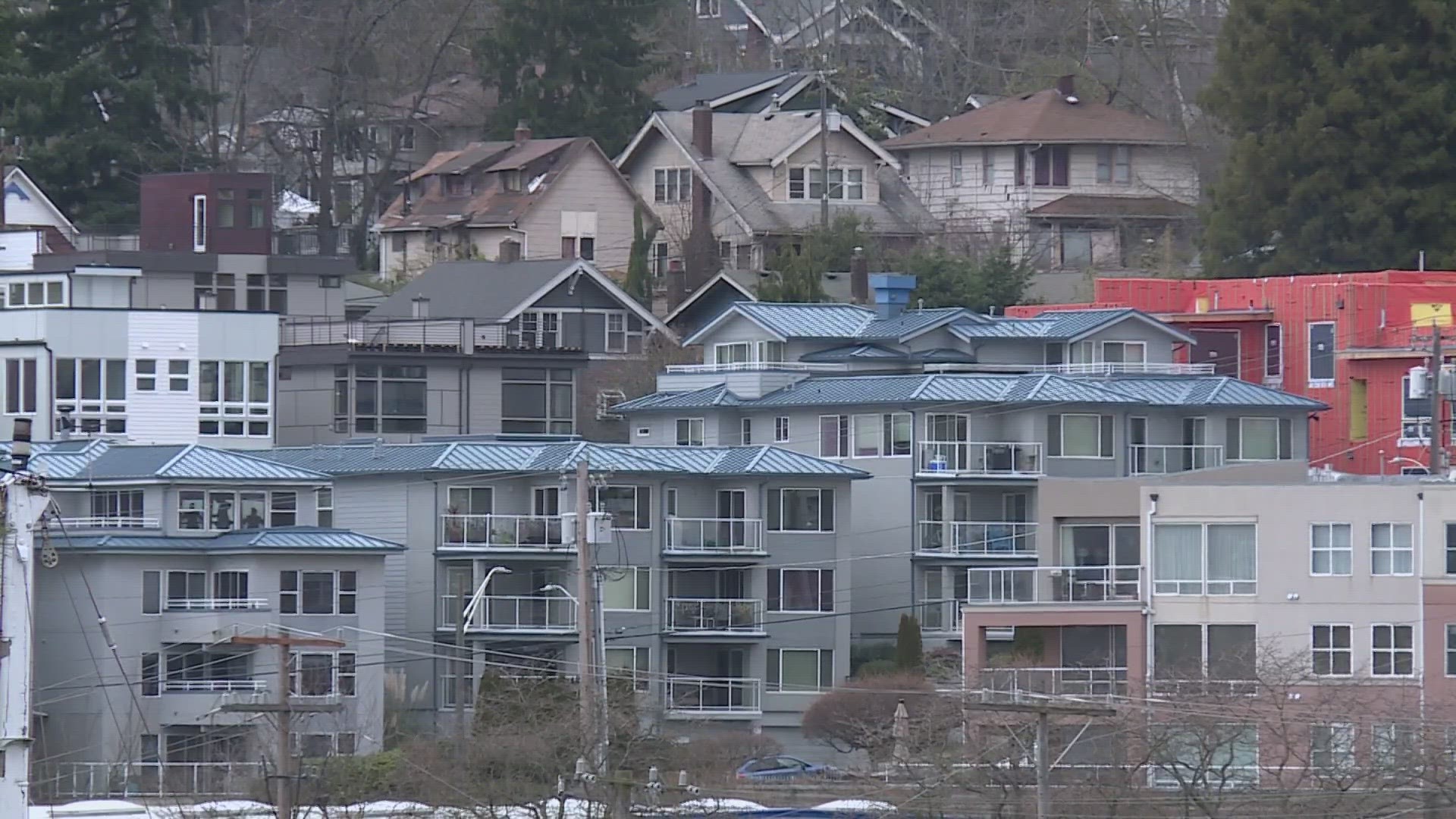SEATTLE — A proposed ordinance being discussed in a Seattle City Council committee would cap late fees for renters.
The ordinance proposed by Seattle City Councilmember Kshama Sawant would cap fees at $10 per month.
The past three years there have not been any late fees for Seattle renters, due to the COVID-19 pandemic, but that will end in October.
At a committee meeting on Friday, the topic was discussed for more than two hours with several public comment speakers.
One of those people who spoke, Alejandro Avila, rents a studio in Capitol Hill and has many friends who rent apartments. He said late fees don’t make people more inclined to pay rent, they just make it harder for people struggling financially.
“I personally pay seventy-five dollars,” said Avila about late fees. “There are other people I know how pay fifty dollars a day plus added interest.”
He is in support of the proposed ordinance to cap late fees in Seattle.
“I would like to get rid of fees altogether, but ten dollars is reasonable and should cover any cost for landlords, that are already making a profit on the rent alone,” said Avila.
But some landlords and groups that work with landlords say late fees are needed to ensure payment.
“The point of owning a piece of rental property would be getting the rent,” said Sean Flynn with the Rental Housing Association of Washington. “And this says for ten bucks, you don't have to pay the rent.”
Though Sean Flynn said late fees should not be excessive, he said they are necessary to protect the landlords, especially for people he works with who only own a few rental properties.
“Making sure the rent comes in on time is really important because they don't have the ability to aggregate that out,” said Flynn. “They don't have one-hundred units -- they've got two units. So, when one person is late, that really affects the way they operate their business.”
Flynn is opposed to the current proposed ordinance but said he believes it could be improved by being aimed to help people who are lower income or using a percentage of rent instead of a flat fee.
But Attorney Edmund Witter with the King County Bar Association’s Housing Justice Project said people have already been forced to pay higher rents in Seattle due to an affordability crisis, and that those who pay higher rents shouldn’t be punished with a higher fee.
“They may be stretching themselves, which a lot of renters are to be able to make that, and then to kind of add a higher fee for that, for the fact that they really, despite circumstance, have no other choice. This seems patently unfair,” said Witter.
While some people worry about this ordinance, others hope to see it pass.
“These regulations and the compounding effect that makes it harder and harder for a small housing provider to operate in this environment, is leading to a loss of housing,” said Flynn.
“I feel like it’s a good step in the right direction,” said Avila.
The cities of Burien and Auburn have implemented a $10 late fee cap.
There is scheduled to be a committee vote on the Seattle late fee cap on April 7 and, if passed, it would then go to the full Seattle City Council.

